
Memorials
Memorials
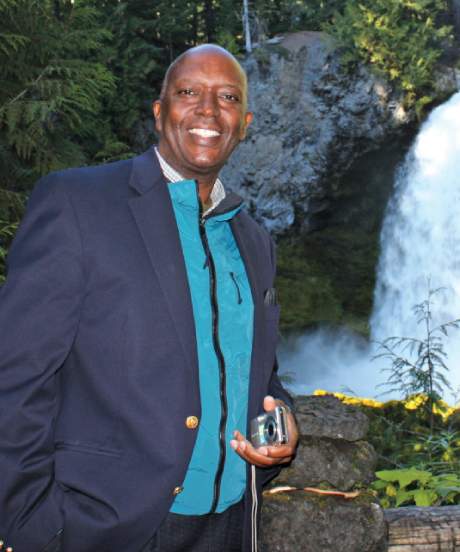
Justice Kakuru
1958-2023
The Honorable Kenneth Kakuru, a trailblazing Ugandan public interest environmental lawyer and Justice at the Ugandan Court of Appeals, passed away this spring. I first met him at an ELAW Annual Meeting in the 1990s. As usual, he wore an impeccable suit — he was the best-dressed public interest environmental lawyer I ever met. His quiet, poised dignity and his radiant smile filled the room.
Justice Kakuru was an inspiring lawyer who encouraged and mentored young lawyers in Uganda and across Africa. He brought ground-breaking cases, creating legal precedents still cited by lawyers in Uganda and worldwide.
He founded Greenwatch, a major public interest environmental law organization in Uganda, and brought cases protecting Lake Victoria, chimpanzees, and pangolins. He also challenged government secrecy and plastic waste. He was immensely proud of his daughter, Samantha, who worked as an extern with ELAW in Eugene and is now a lawyer in Uganda leading Greenwatch.
Justice Kakuru was a giant in environmental law in Africa, and we will miss his infectious enthusiasm and energy. His memory will inspire us to carry on our work to protect communities and living things. Thank you, Mr. Kakuru!
Bern Johnson
ELAW Executive Director
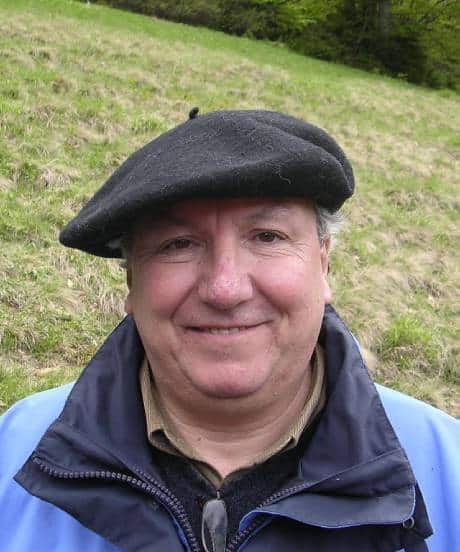
Fernando Dougnac
1946 – 2023
Fernando Dougnac, a Chilean giant of environmental law, passed away in February. I first met Fernando in Chile early in the 1990s. My Spanish was bad, and his English was worse, but he was able to convey his contagious enthusiasm for protecting the environment. Fernando loved ELAW—it enabled him to share lessons in environmental law and celebrate victories with his fellow environmental advocates from around the world. He attended many ELAW Annual Meetings in Oregon and around the globe, and always brought a huge smile, a great spirit, and new legal successes to share. He fought tirelessly to protect his beloved Chile from short-sighted dams, fish farms, mines, and more. Fernando was a positive force and an inspiration. We miss him.
Bern Johnson
ELAW Executive Director
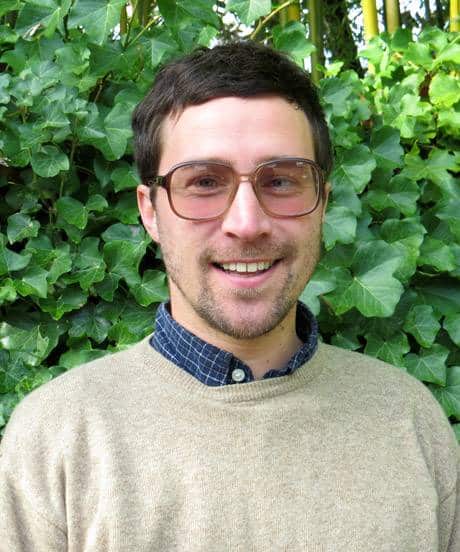
Killian Bryan O. Doherty
1983 – 2021
ELAW Law Associate Killian Doherty was a beloved member of the ELAW US team. He passed away on February 23, 2021 at the age of 37. Killian had been fighting a rare and aggressive cancer since late 2019. He put up a brave fight — working full time with ELAW and spending time with family and friends between treatments.
Unfortunately, his condition worsened rapidly in late February 2021, and his family brought him to spend his final days surrounded by loved ones at his favorite place on earth, Lake Crescent on the Olympic Peninsula.
At ELAW, Killian used his legal skills to collaborate with lawyers around the world protecting communities and the environment. Killian was passionate about defending the rights of Indigenous communities and enjoyed collaborating with Indigenous lawyers. Killian spoke Spanish and Portuguese and worked closely with partners across Latin America. Killian worked tirelessly for justice and made a lasting impact. His absence is felt deeply by the ELAW team and the many close friends that he made through his work around the world.
At the request of Killian’s family, and with a generous gift from them, ELAW established The Killian O. Doherty Legacy Fund to create opportunities for law students and new lawyers to pursue a career protecting communities and ecosystems around the world.
Killian, we miss you!
Bern Johnson
ELAW Executive Director
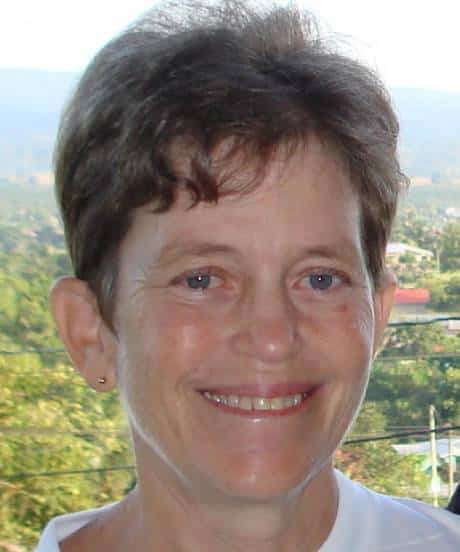
Candy Gonzalez
Candy dedicated her life to fighting injustice. In the 1960s, Candy fought for equal rights for Black people in the United States as a member of the Student Nonviolent Coordinating Committee (SNCC). She traveled to Mississippi with other SNCC volunteers during the 1964 Freedom Summer to help Black Americans register to vote. The group faced violent opposition from white communities and government officials: while 17,000 Black Americans attempted to register during that summer, only 1,600 applications were accepted, some of Candy’s fellow volunteers were assassinated, and at least 20 Black churches across the state were bombed or burned. Candy was jailed and brutally beaten by police, and the injuries she sustained that summer caused her chronic pain.
Candy went to law school to build skills to fight for justice. In the 1990s, she relocated to Belize where she worked tirelessly for communities and ecosystems with the Belize Institute of Environmental Law and Policy. She held the government accountable to the people through the courts, the media, and public campaigns to protect Belize’s environment from excessive coastal development, dams, and oil projects. Her work to support public participation in the political process made it easier for communities to stand together against private profiteers seeking to destroy the ecosystems. Candy also supported lawyers engaged in similar struggles around the world. She is remembered as a fierce, public-spirited advocate for justice, and a steadfast friend.
“Candy’s shoes are too big to be filled by those of us who knew and loved her dearly but we shall honour the work she did and celebrate the amazing person she was. I will especially miss this beautiful soul who touched my life in so many different ways she would never know . . . rest in power, Candy.”
Theiva Lingam, Malaysia

Kay Treakle
1955 – 2020
Kay Treakle spent her life fighting for a clean and healthy environment. She worked for Greenpeace for 10 years then served as Executive Director at the Bank Information Center. She moved home to Tacoma, Washington, joined ELAW’s board of directors, and served as Executive Director at The Harder Foundation.
Her inspiring life was profiled in a report in the Tacoma Tribune: “Kay Treakle took on oil tankers and nuclear reactors. Cancer took the Tacoma activist too soon.”
Everyone at ELAW misses Kay terribly!
The following is an excerpt from the Tacoma Tribune:
“Kay Treakle, according to her longtime husband, Bruce Hoeft, was fearless and funny. Blunt and unflinching. Strategic and whip smart. Tireless, empathetic and a constant advocate for the underdog.
Treakle, an accomplished and steadfast environmental activist who died June 10 at the age of 65 after a two-year battle with liver cancer, was also unquestionably Tacoma, until the very end, Hoeft explained.
“She just wanted to get (expletive) done, always,” Hoeft, said Tuesday, channeling a small slice of his wife’s no-nonsense style.
“Be of use. Get it done. That’s the Grit City part of her,” Hoeft said of his wife, who grew up under the toxic plume of the Asarco smelter and used the experience as fuel for the decades she spent fighting for people and communities, and against the powerful, moneyed interests ravaging the planet.
Ultimately, Hoeft believes it was the Asarco pollution from her childhood that led to her cancer diagnosis…
Treakle’s career as an environmental activist began somewhat by chance in the late 1970s, Hoeft recalled. A promotional tour brought a Greenpeace anti-whaling vessel to Pier 70 in Seattle, where Treakle was working at a nearby bagel shop. She had already been active protesting for civil rights and against the Vietnam War, and after touring the ship, Treakle quickly signed up as a volunteer, Hoeft said.
Soon, Treakle had been hired to manage Greenpeace’s fledgling Seattle office. In short order, she would go on to work for Greenpeace USA and Greenpeace International, directing numerous campaigns from offices in Washington, D.C. and San Francisco.
While Treakle’s name might not be immediately familiar, the causes she championed — and the environmental battles she successfully waged in the Pacific Northwest and across the globe — are the stuff of activism legend.”
Bern Johnson
ELAW Executive Director

Mohamed Nagi
1955 – 2018
Nagi passed away last June and was a second father to me.
Nagi was both a social worker and a lawyer. It turned him into an atypical human rights lawyer and made him found the Habi Center for Enviromental Rights in 2001. He was a legal expert, and was as much concerned about the communities he worked with than about confronting polution and showing other lawyers the way.
Supporting a community to confront heavy industrial pollution is a work that might take five to ten years in Egypt. A lot of good lawyers were keen to represent communities, but in Egypt’s political turmoil, few can safely lead communities throughout such a long process. Nagi was able to nurture a staff of lawyers and social workers who kept a distance from short-term victories and were not swayed by the issues of the day. He closely partnered with leaders of Egypt’s rights movement (such as Ahmed Seif or Khaled Ali) when possible, by doing so mentored and was being mentored, but also bravely continued with his small team when the rights movement was mostly consumed by political arrests and intimidation.
Safety was the alfa and omega. Egypt became rife with polarisation and so was I. Yet Nagi’s Habi Center fell like a safe space, while we were cooking together at noon the emotional difficulties of our personal lives were discussed rather than politics. Most of the people working there were mothers, feminists who were not directly working on women’s issues, just like Nagi. At Habi, Nagi didn’t really nurture activists, there were plenty of other places for them to go to. I can’t really describe what he nurtured instead. But at Habi I encountered a lot of unpriviliged people who were stimulated to search for how they would deal with their life and their fellow countrymen and the environment if they weren’t under this though social or political stress. To me, the thrutfulness that was nurtured in this way gave us all stability and allowed us to guide communities through rough times.
Nagi campaigned for and established legal precedents in cases regarding the black cloud, asbestos, the Nile river, the bird flu, the right to water, unjust water prices and diverse dangerous industries in Egypt such as Mopco in Ras El Bar, the Talkha Fertilizer Factory and the Fertilizer Factory in Arab Abu Said in Helwan. He established key precedents to allow any concerned party to demand environmental information and hold companies accountable. Some of these cases are still ongoing, the most prominent being the case to hold cement companies who started burning coal to account.
During the last five years, his hope was not anymore on creating change, but rather in sewing seeds for brighter times, when Egypt would open up again. He did so by training hundred of NGOs, cadres and lawyers who are continuing his work.
Does Vandousselaere
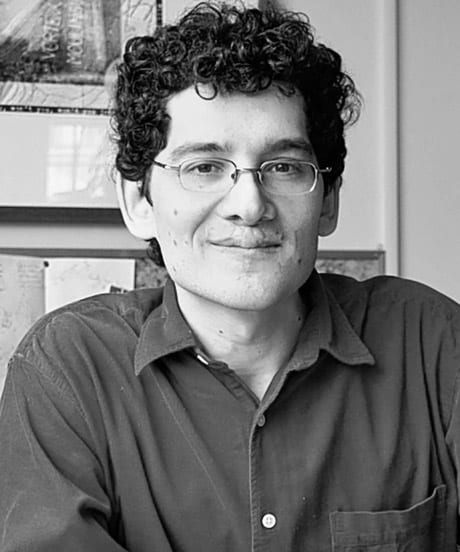
Phil Michaels
1972 – 2014
We will miss ELAW partner Phil Michaels who lost his battle with cancer.
Phil worked for many years at Friends of the Earth, U.K. (FoE), most recently as head of legal. He left that position in 2010 to work at a solar company set up by his brother Joe.
Gita Parihar, head of legal at FoE, writes that Phil “was driven by a passion for rights and justice and he always underplayed his enormous talent and skill. He made a deep impact both on environmental law and on all those who worked with him, who will remember him as a great friend.”
Phil was an inspired participant in the ELAW network and won key victories defending communities and the environment: In 2003, Phil and FoE challenged plans by the U.S. government to send 13 rusted Navy ships to Teesside, England, for scrapping. The “Ghost Fleet” contained hazardous wastes including asbestos, PCBs, and more than 500,000 gallons of oil. Britain`s High Court ruled that plans to scrap the warships posed an unacceptable pollution risk.
Phil helped win a key case on access to information and protecting communities from glufosinate ammonium, a pesticide used on genetically modified crops. In 2003, Biotechnology giant Aventis CropScience filed suit over FoE’s plans to make information about the pesticide available to the public. The case ended successfully in 2004 when Bayer (Aventis’s corporate successor) dropped its lawsuit. Read more.
Phil was a model grassroots defender. He will be sorely missed.
For more information, see Phil’s obituary in The Law Society Gazette.
Mark Chernaik
ELAW Staff Scientist

Svitlana Kravchenko
1949 – 2012
All of us at ELAW mourn the passing of our beloved partner, Svitlana Kravchenko. We have benefited enormously from working with Svitlana over the past 17 years and we will miss her.
Svitlana worked tirelessly to strengthen the rule of law, protect the earth, and advance human rights around the world.
She was determined to give citizens around the world a voice in decisions about their planet and their future.
She fearlessly challenged powerful interests and pursued change through writing, teaching, advocacy, organizing, and personal persuasion.
She brought a warmth, passion, beauty, and joy to her work that lifted all of us and will continue to inspire us.
Svitlana and her husband, ELAW founder and director John Bonine, formed an inspiring and dynamic team. They wrote together, taught together, traveled together, and worked together to make the world a better place.
We send our condolences to John and to Svitlana’s daughter, Maria Kostytska, a lawyer practicing in Paris. We also send condolences to Svitlana’s niece, Olena Kravchenko, and her team at the environmental law organization that Svitlana founded and Olena leads in Lviv: Environment-People-Law.
Svitlana touched people all over the world. ELAW partners from more than 60 countries around the globe have grieved together and shared memories of Svitlana.
Even in passing, she has made the worldwide ELAW network stronger.
Bern Johnson
ELAW Executive Director
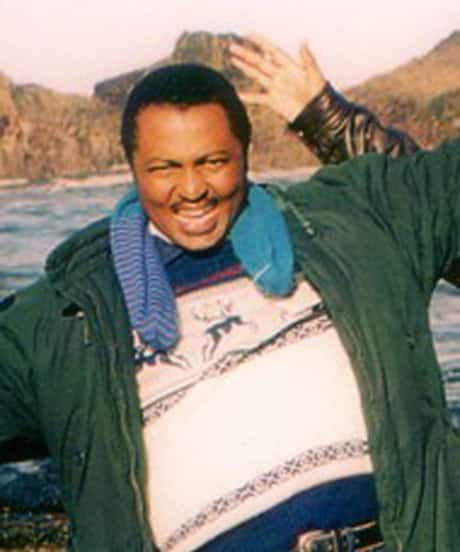
Vincent Daniel Shauri
1967 – 2006
Childhood and early years
Vincent was born on 5th February 1967 in the foothills of Mt. Kilimanjaro. He was the fourth and last born in the family of Mzee Daniel and Mama Lydia Matemu of Kirua Vunjo. This was the same day that the Arusha Declaration was proclaimed, with a view to building a nation founded on principles of justice, equality and solidarity.
Vincent got his early education in various schools as his parents were school teachers and transferred from place to place. After primary school, Vincent obtained his ‘O’ levels at James Seminary in Kilema, Moshi, then his ‘A’ levels at Holy Ghost Fathers’ Seminary at Usa River in Arusha Region. As was then customary, he followed this schooling with a National Service tour of duty at Makutupora National Service Base in Dodoma, in 1988 – 1989.
Vincent graduated in 1993 with an honors law degree from the Faculty of Law of the University of Dar es Salaam. His excellent academic performance earned him a scholarship to study for the Degree of Master of Laws at the same university, where he graduated in 1996.
Activist and environmentalist
Vincent emerged early as a leader and activist defending the environment and human rights. In August 1994, before graduating from the University, he and like-minded young men and women founded the Lawyers’ Environmental Action Team (LEAT). LEAT was the first lawyers’ institution in Africa dedicated to defending the environment and the rights and interests of marginalized communities dependent on environmental resources for their livelihoods. As a founding member, Vincent served LEAT in various capacities until the time of his death when he was Executive Director.
During his tenure at LEAT, Vincent emerged as an expert, activist, and renowned defender of the environment and human rights. He was widely respected around the world. Vincent became a leading researcher and expert in the new field of environmental law. It is no exaggeration to say that in Tanzania today there is not a single statute relating to environmental and natural resource management, passed by Parliament from the mid-1990s to-date, which was not touched by Vincent. Not only government departments sought and obtained his counsel but also international institutions like IUCN and United Nations agencies such as UNDP, FAO, UNEP and numerous non-governmental organizations. This is what ‘Our Vincent Shauri’ was!
Hand in hand with his work at LEAT, Vincent was an advocate of the High Court of Tanzania, a partner in the Mawenzi Chambers law firm of Dar es Salaam, and a one-time Executive Secretary and Honorary treasurer of the Tanganyika Law Society (Tanzania’s national bar association).
Vincent emerged as a leading defender of the poor and the marginalized who often found themselves being evicted from their ancestral lands in order to make room for large scale projects in sectors such as mining. As LEAT’s Chief Executive Officer, he strove to ensure that the cry for justice of the likes of Mama Amina na Mzee Jumbe Kumega of Lusu, Nzega; Mzee Luzama and Mama Baesi of Bulyanhulu; Mzee Iroga and Mama Bhoke Marwa of Tarime and Mzee Mushi Ngao of Mererani was heard not just in Tanzania but all over the world. He often made sure that community members affected by large-scale mining industry were fed and sheltered whenever they visited Dar es Salaam in pursuit of their rights. On numerous occasions he saw to it that these citizens were invited to international gatherings to present their grievances to the international community. He often accompanied them to such gatherings. This was ‘Our Vincent Shauri.’
The family man
Vincent was not just an activist and a renowned lawyer, he was also an exceptional father and family man. For those of us who knew him closely, we know how deeply he loved his wife Mercy and his children Ruaika and Aika. Those of us who traveled with him internationally would often find him talking on the phone to Mercy and the children in the middle of the night, even if he had left Tanzania that same day! His marriage to Mercy and his beloved children Ruaika and Aika serve as an example for many of us.
Vincent deeply loved his parents and siblings. How often did we overhear him complaining about lack of spare parts for Mzee Matemu’s old tractor, or the injustices perpetrated against Brother Deo and fellow miners at Mererani? How many times did we bear witness to Vincent helping his numerous nieces and nephews and his sisters Mary Linda, or his brothers-in-law such as Lukio? This is what ‘Our Vincent Shauri’ was!
Vincent was also an exemplary member of the Holy Spirit of Jesus Catholic Community of Mbezi Beach, Dar es Salaam, where he lived. Christians and other members of that Community will remember Vincent as a dedicated Communitarian who was always at the forefront of the spiritual and material well being of his family and Community. How often do we remember Vincent and his family actively working to further the cause of that Community? How many times did we see him contribute materially and morally to his Community and neighbours during hard times and good times? This was ‘Our Vincent Shauri!’
Illness and death
Vincent Shauri fell ill in May 2005. He was diagnosed with tumors in his lungs. Fearing the worst, his family and friends took him to Chennai, India for special cancer treatment. He remained there until mid-January 2006. To those of us who saw him upon his return we bear witness to the good health he appeared to be in. We also bear witness to how worried we all were of how debilitating cancer is and how difficult it is to treat. We bear witness to how we would have liked to see our Vincent take as good a rest as possible. We know, however, that considerable family and office responsibilities awaited him upon his return from India, responsibilities which never allowed him to rest as we would have liked him to. These responsibilities compelled him to return to his office and resume work barely a week after returning from India.
On 3rd February Vincent was taken ill with apparent malaria. Upon visiting hospital a day later, doctors diagnosed pneumonia. He was admitted at the Hindu Mandal Hospital in the city on Tuesday 7th February. His condition sharply deteriorated and at about half past three on the afternoon of Thursday 9th February, the Almighty God decided to call him home. He had just turned 39 four days earlier!
To break the sad news of his passing, Vincent’s co-workers at LEAT sent the following message around the world: “For those of us who worked closely with him and loved him as a friend and colleague, his death leaves a massive void which will be hard to fill.”
Writing on behalf of environmental activists from Swaziland, Ms. Thuli Makama of Mbabane, Swaziland replied: ‘Our Vincent Shauri’: “The Almighty God had given us this life and he has through his wisdom again taken it from us, we praise HIS name yet again. Our hearts go out to Mercy, Ruaika, Aika and the whole family. Their loss is shared across the globe and definitely the whole fraternity in Southern and Eastern Africa will feel the loss even more. In honor of his name we pray God gives all of you… the strength to work even harder and pass through this tragic time.” This was ‘Our Vincent Shauri!’
KWA HERI RAFIKI YETU! ADIOS, AMIGO! ADIEU, CONSIGLIARE!
Tundu Lissu
Lawyers Environmental Action Team
(excerpted from a eulogy presented by Lissu at Vincent’s funeral)
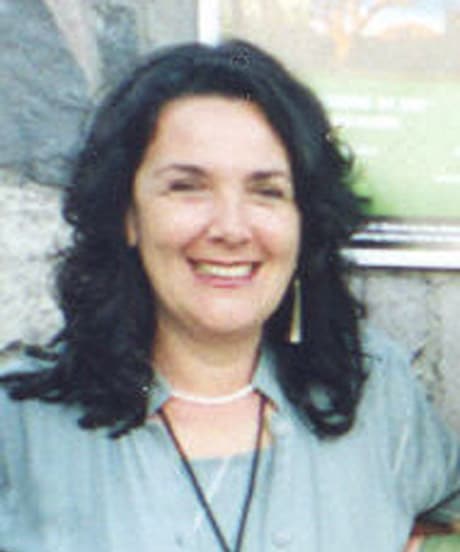
Carlota Sanchez-Aizcorbe
1949 – 2005
Carlota was tireless in her pursuit of environmental justice. She dedicated more than 20 years to work with communities affected by environmental degradation in the metropolitan area of Buenos Aires, Argentina. She was particularly devoted to communities living in the Reconquista River Basin and the Parana Delta. She was a staunch defender of the fundamental human right to live in a healthy environment.
In 1983, Carlota founded Fundacion Pro Tigre y Cuenca del Plata (Pro Tigre) which works to promote citizen participation in the defense of water resources in and around Buenos Aires.
Although not a lawyer, Carlota pioneered the use of law to protect the environment in Argentina. She started a class action suit to protect the Reconquista River before the judiciary was familiar with class action suits. Her efforts were acknowledged by the Network of Environmental Lawyers of Argentina (RADA) where she was named an honorary member. In 2002, the newspaper La Nacion designated Carlota as one of Argentina’s 100 most important leaders.
Carlota began participating in the ELAW network in 1995. She attended ELAW annual meetings in 1997 (U.S.A.), 2001 (U.S.A.) and 2002 (Mexico).
Carlota died on December 17, 2005, in a boating accident on her beloved Parana Delta.
She left us the legacy of her convictions – that each person has the possibility to contribute to a better world through joint action and work. Carlota will be remembered for her energy, strength and perseverance.
Meche Lu
ELAW Staff Scientist
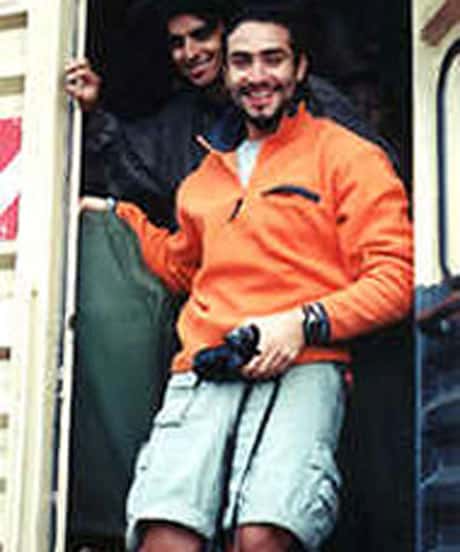
Carlos Baumgarten
? – 2002
Carlos was coordinator of the environmental law program in the Centro Mexicano de Derecho Ambiental (CEMDA).
Since 1995 he was dedicated to protecting marine wildlife in Mexico. Gustavo Alanis, President of CEMDA said Carlos “defended whales, sea turtles, coral reefs and mangroves. He worked with grassroots organizations, neighbors and trained judges. Not everyone confronts big corporations or the government to defend the natural resources”. Carlos also supported environmental and human rights organizations defending low income campesinos imprisoned for defending the forests of Sierra de Petalan. Shortly before his death Carlos was able to stop temporarily a tourism project affecting one of the last sea turtle breed areas in Xcacel-Xcacelito in Quintana Roo.
Carlos was also a long distance runner. He died on the morning of January 26, 2002 when some heavy rocks collapsed from the Toluca mountain and hit him during a running training session. He was 29 when he died.
ELAW is saddened by the loss of our friend Carlos, a passionate defender of Mexico’s environment.
“He will be terribly missed by us all as a friend and a comrade in struggle to save the environment.”
Tundu Lissu, Tanzania
“We have lost a valuable amigo, a good environmental lawyer and a true friend.”
Sarguna Kumaari, Malaysi
“His memory will always inspire us to fulfill our common objective to save mother earth.”
Prakash Mani Sharma, Nepal
“Carlos was one of the best, most committed and happiest of us all.”
José Ignacio Pinochet, Chile

Dr. Mohiuddin Farooque
1954 – 1997
Known to his friends simply as Farooque, Mohiuddin Farooque made an immense contribution to the public interest environmental law movement. He was an Advocate of the Supreme Court of Bangladesh, founder and Secretary General of the Bangladesh Environmental Lawyers Association (BELA), and co-author of “Laws Regulating Environment in Bangladesh.”
The legal principles adopted in two of Farooque’memorials-tribute-years landmark cases laid the foundation for all subsequent public interest environmental cases in Bangladesh, many of them brought by BELA, Farooque’s brainchild.
Mohiuddin Farooque vs. Government of the People’s Republic of Bangladesh and Others (1995) established that non-governmental organizations (NGOs) have legal standing to enforce environmental laws. Mohiuddin Farooque vs. Secretary, Ministry of Commerce, Government of the People’s Republic of Bangladesh and Others (1996) established that citizens of Bangladesh enjoy a constitutional right to a healthy environment.
Farooque was recognized by the Association of Development Agencies in Bangladesh (ADAB) and the Coalition of Environmental NGOs (CEN) for his work establishing legal standing for NGOs. He also received the ADHUNIK Award from the President of the Republic of Bangladesh for his outstanding contributions to Bangladesh’s anti-tobacco movement.
Farooque began participating in the ELAW network in 1994 and attended the ELAW Annual Meeting that year in the Philippines. He also attended the 1997 ELAW Annual Meeting in Oregon. Farooque died on December 2, 1997.
Farooque had an infectiously positive attitude, warm heart, and an inspiring drive to leave the world a better place.
Mark Chernaik
ELAW Staff Scientist

Dr. Germán Sarmiento Palacio
1945 – 1996
As founding member and president of Fundepublico and ELAW Colombia, Dr. Sarmiento Palacio was a creative and brave litigator, exercing judicial presence representing communities in enviromental impact cases of huge transcendence in Bolivia. Pioneer of popular actions as a mechanism to guarantee the force of the colective rights, Germán published his book “The Popular Actions in the Private Civil Law” which today constitutes required reading for those interested in public interest law in Colombia.
Germán passed away from this world Monday, November 11, 1996 from complications resulting from a brain tumor. He leaves a legacy to Colombia in the topic of judicial actions in defense of the enviroment and the public interest.
For Fundepulico, for Colombia and for the world, the disappearance of Germán Sarmiento Palacio is a hard hit, because this pioneer and defendant of the public interest was on the summit of his intelectual production.
“Germán knew that to live among the living, and to transcend death, he had to denounce personal interests and professional goals; that he had to take on his work as a mission, and not as a career.”
Esther Sanchez, Colombia
“I do send my condolences to our colleagues at Fundepublico in Colombia for the death of Dr. Germain. May Almighty God lay his soul in peace.”
Rugemeleza Nshala, Tanzania
“Our thoughts are with Germán’s family, friends and colleagues at FUNDEPUBLICO at this sad time. May we celebrate his life.”
Carolyn Sykora, United States
“All of us at E-LAW Ukraine in our thoughts are with Germán’s family and friends. We send you our condolences”
Marianna Bolshakova, Ukraine
“Heartfelt condolences to Germán Sarmiento family and Fundepublico friends.”
Olga Davydova, Russia
“Nuestras mas sinceras condolencias por el fallecimiento del senor Germán Sarmiento, cuyo mas importante legado sera sin duda su ilustre ejemplo como infatigable defensor del medio ambiente.”
Sus amigos de Justicia para la Naturaleza, Costa Rica
“Familia y compañeros de Germán Sarmiento. Desde Panamá les enviamos nuestro profundo pesar por la desaparición de un jurista de las causas ambientales. Como jurista ambiental la perdida de un luchador por la defensa de la madre tierra no sólo afecta a abogados y ciudadanos de las causas civiles. La madre Tierra siente la ausencia de un hijo que a combatido por un mundo más humano en donde todos los seres vivientes podemos vivir con respeto. Estoy convencido que nuestro hermano está viajando por rios de oros a su encuentro con la madre tierra para desde alli con los aportes reales nos aliente en nuestro diario vivir. Les envio mi más grande pesar.”
Hector Huertas Gonzales, Panama
“Heartfelt condolances at your tragic loss.”
Angela Andrews, South Africa
“I am deeply sorry to learn about Germán’s death. I never met him, but I share in the grief of his family, friends and relatives… May God rest Germán’s soul in peace, and may He give courage and comfort to those he has left behind.”
Michael Ochieng Odhiambo, Kenya
“He will be remembered as a visionary social changemaker. His extraordinary efforts to improve society will endure through the organization he founded and the work of the many people he inspired.”
Ashoka.org

